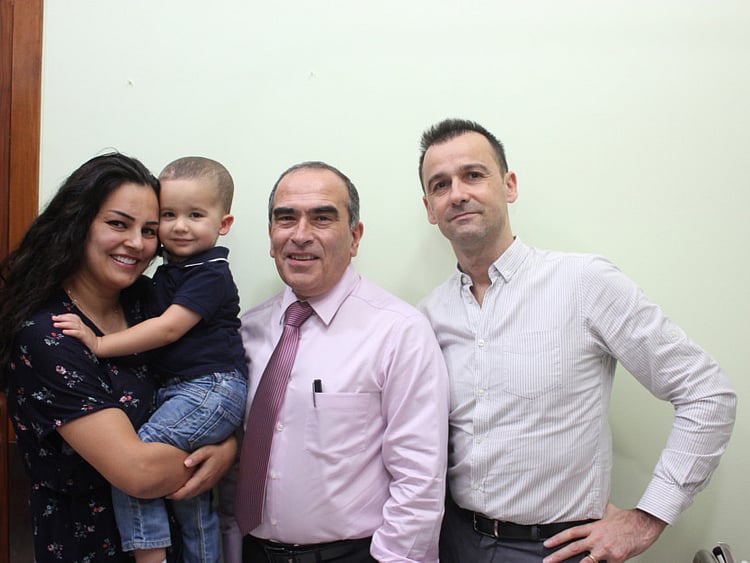Dubai: A large brain tumour was removed from a two-year-old toddler after his parents admitted him into Zulekha Hospital, Dubai, following unusual symptoms including an imbalance in his walk and a squint in his eye.
An MRI scan revealed a large tumour in the brain of the Italian toddler, Julian, following which he underwent surgery.
Dr Salim Kanaan, consultant neurological surgery at Zulekha Hospital who reviewed the MRI report, said the tumour had likely been growing slowly over the last two years — since the child was born. Julian, had been unable to walk properly for at least one year and this was due to compression on the brain (cerebellum) which resulted in ‘Gait Ataxia’ — a term to describe uncoordinated walking.
His head circumference was also disproportionate to the size of his body for his age, which was caused by a buildup of fluid on the brain, also known as ‘Hydrocephalus’.
Julian recently developed a recurrent squint and repeated choking while drinking fluids, which were caused by the compression on the brain stem and corresponding cranial nerves. He also developed symptoms of delayed reactions and a slurred speech.
“Unfortunately, there is no known cause for these kind of tumours at such a young age, although there is ongoing research of the level of mutations in enzymes that control gene activities and cell division,” said Dr. Kanaan.
Surgery was unavoidable
The patient was taken to the operating theatre and surgery took almost 12 hours, where Dr Kanaan resected the tumour totally through a sub-occipital craniectomy. He was assisted by Dr Rajesh Kumar, Zulekha Hospital neurosurgery specialist. The tumour was extracted successfully, without damaging any of the surrounding tissues and resolving the Hydrocephalus issue.
Since the operation, Julian’s symptoms have been noticeably fading, which indicates a high possibility of a full recovery. “The tumour was completely removed and a follow up MRI scan of the brain will confirm if there is a small residual tumour tissue retained, and if so, a second surgery may need to be performed, as this type of tumour in unresponsive to radiation or chemotherapy. The first MRI scan will be done within two months of the surgery and will be continually monitored over the next five years,” said Dr Kanaan.
He pointed out that cerebellar tumours are the most common brain tumours in children. “Many parents may be wondering what precautions can be taken to prevent this from happening to their own child; unfortunately there isn’t a proven way to avoid these tumours because there are no detected causes related to habits, diet or lifestyle,” said Dr Kanaan.
He pointed out the best course of action is for parents to admit their child to hospital if they suspect any abnormal symptoms or activities, so that specialised doctors can investigate the possibility of a disease and recommend the best treatment.
Sign up for the Daily Briefing
Get the latest news and updates straight to your inbox
Network Links
GN StoreDownload our app
© Al Nisr Publishing LLC 2026. All rights reserved.
